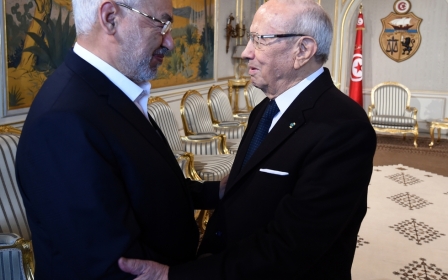A new Arab Spring is looming, warns UN report

A UN report has warned the Middle East could face a new "Arab Spring" as young people struggling to find jobs and a place in society turn to "more direct, more violent" means to have their voices heard.
The Arab Development Report, released on Tuesday by the United Nations Development Programme, said Arab governments should seize the "historic opportunities" and "demographic dividend" provided by a new generation of highly educated, urban youth.
It warned however that failure to help them to realise their potential could lead to a wave of protests across the region, as witnessed almost six years ago in the popular uprising that became known as the Arab Spring.
Youth joblessness is much higher than the world average, a potential cause for major unrest, the report warned.
The region's youth unemployment rate, at 30 per cent, stands at more than twice the world’s average of 14 percent, while almost half of young Arab women looking for jobs fail to find them.
The report went on to warn that Arab economies may not be able to find the 60 million new jobs needed to absorb the new generation of Arab youth by 2020.
The report said protests movements in the Middle East are cyclical and often boil over every five years: North Africa’s unrest spiked in 2001, 2006 and 2011, each time more turbulent than the last.
It said youths aged 15-29 now constituted nearly a third of the region’s population, while another third was under 15, and concluded that “youth in the Arab world are struggling to attain full social and economic inclusion in their societies”.
And though less likely to vote than the global average, young Arabs are much more inclined to protest.
Young Arabs, the report said “may prefer more direct, more violent means, especially if they are convinced that existing mechanisms for participation and accountability are useless.”
At the same time, the new generation is “the largest, the most well educated and the most highly urbanised in the history of the Arab region".
"The wave of uprisings that have swept across the Arab region since 2011 has shown us that we can no longer treat young people in the Arab region as passive dependents or a generation-in-waiting,” said Sophie de Caen, the acting director of the Regional Bureau for Arab States in UNDP.
“Today, youth in the region are more educated, more connected and more mobile than ever before. Arab countries can reap the huge demographic dividend that its young population represents if they invest in enhancing the capacities of their youth and enlarging opportunities available to them.”
Challenges facing the youth
The eight-chapter report discussed various issues around youth development including identity and civic participation, education and employment, the empowerment of women and mobility.
It called on Arab states to invest in their youth and empower them to engage in development processes, while warning against unaddressed issues of unemployment, poverty and marginalisation.
“Failure to translate gains in education into decent jobs for youth in pace with population growth, not only curtails benefits of a demographic dividend but may fuel greater social and economic tensions in the region as well,” the report said.
Moving onto wars and violent conflict, the report predicted that by 2020, almost three out of four Arabs could be “living in countries vulnerable to conflict”.
According to the report, although home to only 5 percent of the world’s population, in 2014 the Arab world accounted for 68 percent of its battle-related deaths, 47 percent of its internally displaced and 58 percent of its refugees.
New MEE newsletter: Jerusalem Dispatch
Sign up to get the latest insights and analysis on Israel-Palestine, alongside Turkey Unpacked and other MEE newsletters
Middle East Eye delivers independent and unrivalled coverage and analysis of the Middle East, North Africa and beyond. To learn more about republishing this content and the associated fees, please fill out this form. More about MEE can be found here.




